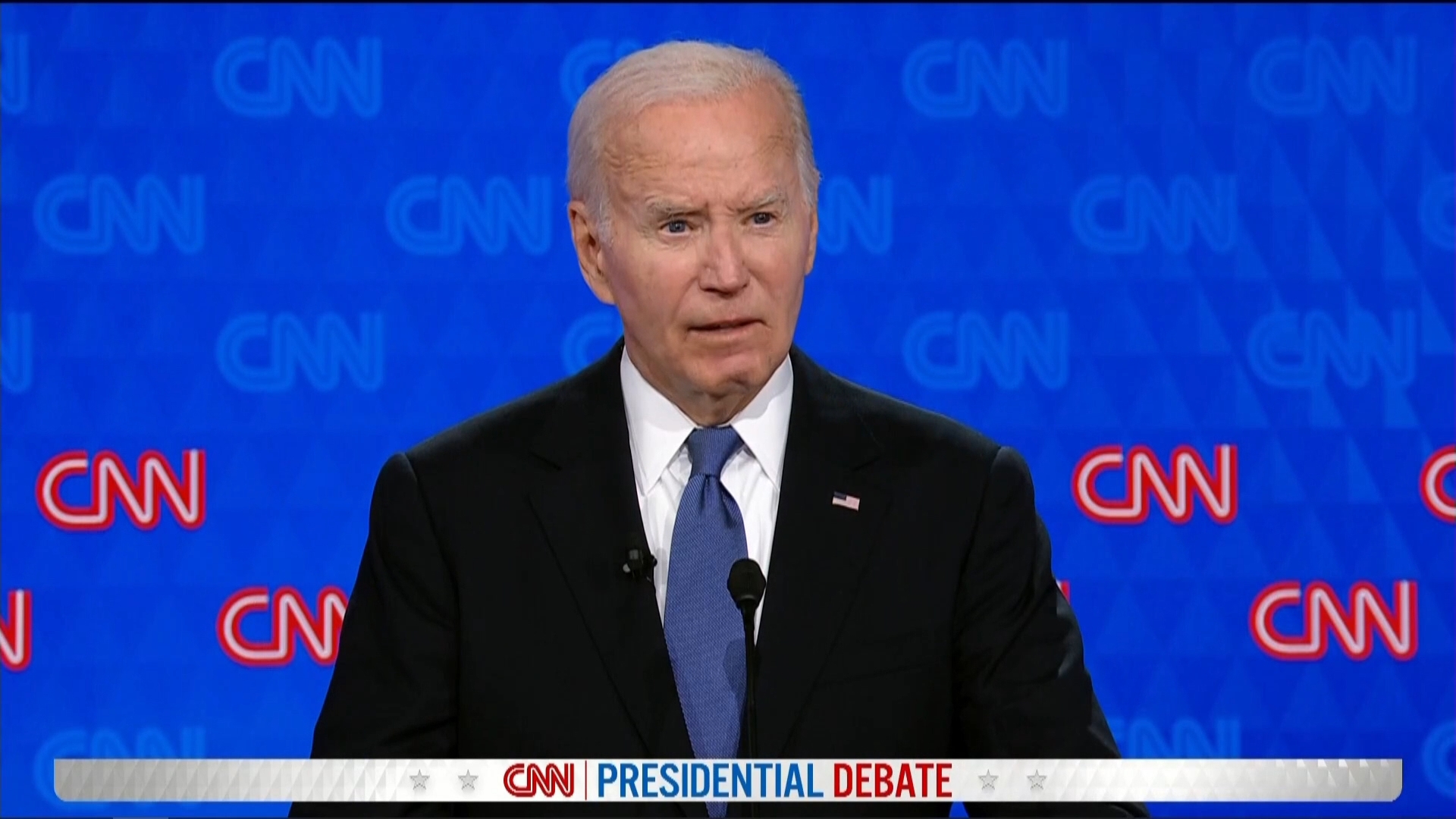DALLAS — Concerns over President Joe Biden’s age are not new.
He’s running for a second term at the age of 81.
What is new are calls from within his own party for him to withdraw from the race for president after a disastrous late June debate performance.
“It is more likely than not Joe Biden will continue as the nominee. That’s the most likely scenario at this point. But it’s less likely than it was a week ago,” said SMU political science professor Matthew Wilson.
We asked Wilson to provide WFAA with some expert perspective about the moment we are in.
Watch the full interview with Political Science Professor Matthew Wilson below:
Is it unprecedented?
It is, Wilson said.
“Particularly given that the talk centers around his incapacity, and not policy disagreements within the president and his own party,” he said.
In 1968, Texas native Lyndon Baines Johnson ended his run for re-election because of widespread objections to the war in Vietnam.
But that happened in March, long before the late August convention. Wilson believes comparisons to 1968 are a stretch because of several things we’ll discuss in depth below.
One reason: This is not a revolt along some ideological faction.
“We really do not have any parallel to this situation in modern times,” Wilson said.
How would it work?
Wilson said the easiest scenario is if Biden voluntarily steps aside.
Currently, 3,894 – or 99 percent – of delegates who will attend the Democratic National Convention in Chicago in August are pledged to Biden.
Each state has different ways of choosing delegates, but Biden earned those delegates during primary elections. Wilson said getting those delegates to vote for someone else while Biden is still in the race is “not 100 percent impossible but it is very difficult.”
But if Biden voluntarily removes himself, he could release the delegates.
“He could either endorse someone else and ask them to support that person or say, I leave it to your judgment and your determination who the best nomination for the Democratic party would be,” Wilson explained.
“Even if Biden does endorse someone, he cannot bind his delegates to that person. If he releases his delegates, he can ask them to support a given individual, but at that point, it’s entirely up to them which way they go on the convention floor.”
Wilson said that could make for a chaotic convention.
“But what Democrats are weighing right now is whether some measure of chaos is preferable to moving forward with a candidate who’s clearly been damaged in the eyes of the electorate,” he said.
Would the vice president automatically be the nominee?
Not automatically, Wilson said.
If Biden were to release his delegates, they are not obligated to vote for Vice President Kamala Harris.
They are released to support anyone.
“Kamala Harris is certainly in the mix, but no decision that Biden can make binds the Democratic party to choose her as the nominee,” Wilson explained.
What happens to all the donations Joe Biden has brought in?
The Biden-Harris campaign said it raised $264 million in the second quarter of 2024.
That includes $127 million in June – which is more than Donald Trump’s June haul.
The Biden-Harris campaign also said it raised $38 million following the debate.
But if Biden is no longer on the ticket, how can that money be spent?
“Money that’s been contributed thus far has technically been contributed to the Biden Harris re-election campaign,” Wilson said. “So, if Kamala Harris remains on the ticket as presidential or vice-presidential nominee, the ticket can continue to spend the money basically seamlessly. If Kamala Harris is not on the ticket in either spot, then they’ve got a mess.”
At this late date, does anyone but Joe Biden have a chance?
Yes, Wilson said.
“I do think another nominee would have a chance, just like I think Joe Biden has a chance and that’s because Donald Trump is such a polarizing figure,” he said. “We know there’s a substantial portion of the American electorate that would vote for a ham sandwich over Trump. They’d vote for any alternative on the ballot to Donald Trump. That gives whoever the Democratic nominee is a fighting chance.”
What about 1968?
LBJ pulled out of the race in late March.
Martin Luther King, Jr. was assassinated in early April.
Robert F. Kennedy, who was running for the Democratic nomination, was assassinated in June.
Democrats went into their convention without a clear nominee and there was unrest across the nation because of deep divisions over the war in Vietnam.
Historic riots and protests broke out inside and outside the convention, which coincidentally was held in Chicago.
Democrats eventually chose Hubert Humphrey as their nominee. Humphrey lost that November to Richard Nixon.
That fraught convention led to reforms that changed the presidential nominating process, Wilson said.
That’s the main reason he sees it as a stretch to compare it to the present.
“In 1968 the party bosses still had a lot more power to orchestrate an outcome,” Wilson said. “Since the early 70’s the primaries have been given a lot more binding weight. That makes a last-minute substitution a lot tricker than it would have been in 1968.”

